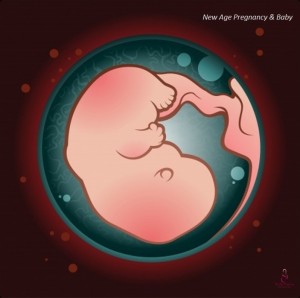
In order to monitor the health of the mother and unborn baby, there are prenatal tests to take during pregnancy. Such tests are important to identify potential risks so that appropriate care and action can be taken in advance. As a new parent, you might be confused with the various terms and its purposes. Here’s a guide to let you know more about the different prenatal tests you may need to undergo.
First Test
The very first test is to confirm the pregnancy. The pregnancy needs to be confirmed early so that the family can prepare for the baby arrival – both physically and psychologically. Throughout your pregnancy, visits to the obstetrician need to be scheduled, generally once a month for the first two trimesters and bi-weekly in the third trimester. There will also be advice on managing the health of the mother, such as nutritional supplements to take and what physical activity to do or not to do.
Regular Tests throughout Pregnancy
(i) Urine test
Typically a urine sample will be taken at antenatal appointments to check for urinary tract infection, diabetes and pre-eclampsia. Pre-eclampsia is a potentially serious condition that affects about 5% of pregnancies and can be life-threatening. It is usually associated with high blood pressure.
(ii) Blood Pressure test
This is to detect changes in blood pressure; for instance, high blood pressure could be pregnancy-induced hypertension while a low blood pressure means that care must be taken when getting up to prevent falling due to lightheadedness. Blood pressure also affects the amount of blood to the placenta.
First Trimester Tests
(i) Blood Group
It is important to confirm the blood group as blood transfusion may be required during delivery.
(ii) Complete Blood Count
The Complete Blood Count (CBC) is to check on the levels of hematocrit, hemoglobin and platelets. Hemoglobin and hematocrit measure anemia risk and iron supplements may be prescribed. Iron is needed to produce haemoglobin to carry oxygen in red blood cells. Platelet count measures the blood clotting ability and a low platelet count is risk for bleeding to death, especially during delivery. Thalaasaemia, an inherited blood disorder, is also tested as this disorder prevents the body from producing sufficient haemoglobin.
(iii) Rhesus Factor
Rhesus positive means that there is a substance D antigen on the surface of the blood cells. Rhesus negative means that there is no such substance. An unborn baby can be rhesus positive if either parent is. If a mother is rhesus negative, her body may produce antibodies to attack the baby’s red blood cells which are rhesus positive. This needs to be tested in order for the immunoglobulin RhoGAM is to be injected at around 28 weeks of pregnancy and within 72 hours of delivery to prevent this from happening.
(iv) Other Blood Tests
Other blood tests include screening for HIV, hepatitis B and syphilis. Immunity against rubella will also be tested.
(v) Pap Smear
A pap smear can check for cervical cancer and sexually transmitted diseases such as chlamydia and gonorrhea. These have to be detected early so that actions can be taken to protect the mother and unborn baby, such as taking pregnancy-safe antibiotic.
(vi) Ultrasound
Ultrasound screenings are regularly conducted during the antenatal appointments, though with a different focus for screening done at different stages of pregnancy. By visual observation, certain abnormalities can be detected and at certain of the appointments, a more detailed measurement of the fetus will be taken. During the first trimester, the scan should focus on screening for ectopic pregnancy, heartbeat, number of embryos and estimate the gestational age of the pregnancy.
Screening for Down Syndrome and Spina Bifida
Screening for Down Syndrome comprises various tests and can take place from around week 11 to 20. Screening for Down Syndrome is not compulsory but offered in all pregnancies. The blood tests can test for abnormal development which can present themselves as either higher or lower than average levels of various proteins:
i. Alpha-fetoprotein
ii. Estriol
iii. Human Chorionic Gonadotropin (hCG)
iv. Inhibin
v. Pregnancy-associated plasma protein A (PAPPA)
These blood tests results are then corroborated with ultrasound screening, namely the fetal nuchal translucency test that examine the neck fold of the fetus for increased fluid/ thickness. If these tests indicate high risk of chromosomal abnormality, other tests (that carry miscarriage risk) are offered to confirm the likelihood of such abnormality. These tests are Chorionic Villus Sampling (CVS) or Amniocentesis, the former being testing a sample from the chorionic villi that make up the placenta and the latter being a sample of the amniotic fluid.
Read more: Screening Your Baby For Down Syndrome In Singapore
Second Trimester Tests
(i) Glucose Challenge and Glucose Tolerance Tests
The glucose tests are carried out from around the 24th to 28th week of pregnancy. The glucose challenge test is an initial screening test for gestational diabetes and if the results are above normal, a glucose tolerance test will be prescribed. The glucose tolerance test involves fasting for 14 hours before the test. The mother’s blood is drawn to test the “fasting blood glucose level” and then asked to consume a sugary drink. Subsequently, every hour for three hours later, blood will be drawn to assess how well the body processes sugar.
(ii) Ultrasound
In the second trimester, an ultrasound screening focuses to check for structural abnormalities for instance, the placental localization and cervical length. Conditions such as diaphragmatic hernias and congenital heart disease of the fetus can also be detected. During this scan, it is also possible to tell the gender of the baby.
Third Trimester Tests
(i) Group B Strep
Group B Streptococcus (GBS) is a type of bacterium that is found in the lower genital tract and a GBS infection usually causes no problems but can be serious in the mother during pregnancy. GBS may cause chorioamnionitis (a severe infection of the placental tissues) and postpartum infection. Urinary tract infections caused by GBS can lead to preterm labor and birth, or pyelonephritis and sepsis. GBS can also cause meningitis, pneumonia or blood infection in newborn babies who contract the infection either during pregnancy or during delivery. Antibodies will be prescribed to minimize the transmission of the strep bacteria to the baby.
(ii) Biophysical Profile
A biophysical profile tests include a non-stress fetal heart monitoring and an ultrasound. The fetal heart monitoring allows for checking of the fetal heart rate, which is typically between 110 to 160 beats per minute. An abnormal heart rate pattern indicates problem, including lack of oxygen and may warrant emergency delivery in certain instances. An ultrasound is to examine the baby’s breathing, movement, muscle tone, heart rate and the amount of amniotic fluid.
Other tests
Genetic screening is to diagnose genetic abnormalities before birth, and may be recommended for those with a family of genetic disorders. Genetic disorders that can be screened beforehand include sickle cell anemia, cystic fibrosis, hemophilia A, Duchenne muscular dystrophy, polycystic kidney disease and tay-sachs disease. If you suspect other infections like toxoplasmosis or hepatitis C, you can also request for screening.
If your obstetrician is based at a hospital/ major medical center, these tests will be offered in-house, such as at the KK Women’s and Children’s Hospital. The prices of these tests are not published. It is advisable though to check with your obstetrician if they have all the tests available or you’d have to go to another hospital/ clinic for the test. The key is to choose an experienced obstetrician that you are comfortable with as he/she will be supporting you throughout your pregnancy journey and monitoring your health and your baby.
Written by Mei






